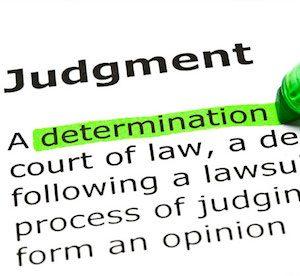Accepting Cases Nationwide
Can You Recover Investment Losses?

There are a number of instances where investment losses are recoverable. These cases fall broadly under three categories: excessive trading, unsuitable investments and misrepresentations. These are discussed more fully under the topic “What Types of Investment Losses are Recoverable.
Most people are unaware that investment losses can be recovered; they write off losses as imprudent decisions, or feel helpless and foolish for having had their trust betrayed. While not all losses are recoverable, the important thing is to speak to an experienced securities attorney as soon as you suspect wrongdoing. A careful analysis, including determining when the statutes of limitations are triggered is essential to evaluating any claim.
Where to Begin

The first step is going to the right forum. Many investors mistakenly believe the Securities and Exchange Commission will recover their losses for them. Others write letters to the Department of Corporations or the Secretary of State complaining about a broker or an investment loss. These organizations may initiate disciplinary or criminal action against wrongdoers, but they will not act as your advocate to recover your losses.
In order to recover your investment losses you must go to the proper forum. In most cases this means filing an arbitration claim with FINRA Dispute Resolution, Inc.
With few exceptions, any financial planning firm, and the individuals who sell investments for the firm must be licensed or registered to sell securities. Registration may be through the Securities and Exchange Commission as a “Registered Investment Advisor (RIA) or more typically, through FINRA as a “registered representative. Virtually all FINRA licensed firs require customers to arbitrate any disputes at FINRA rather than going to court. This is done by requiring clients to sign arbitration agreements when they open their accounts. Take a look at your client agreement. More than likely you will see an arbitration clause buried in the fine print at the end of the agreement. If your financial planner is not FINRA licensed, you will generally have to take him to court to recover your losses.
Arbitration before FINRA is generally quicker and less expensive than litigation. It is also binding, which means no appeals, absent extenuating circumstances. Arbitration is also designed to be easier on the parties. This means no depositions, limited discovery practice and no court appearances. And, although not private, there are no transcripts or court reporters allowed by non-parties to the arbitration. This assures a level of privacy missing in litigation. Also, FINRA offers a successful mediation program, which provides a less confrontational and even quicker means of dispute resolution than arbitration. One of the best things about arbitration is how quickly a dispute can be resolved. A typical case takes nine to twelve months from day of filing to final binding decision, significantly less time than most court cases.
If your agreement with your financial planning firm doesn’t have an arbitration agreement, you must seek relief in the courts. This can take years and be quite expensive. Unlicensed financial planning firms rarely use arbitration agreements, or if they do, they typically require arbitration before tribunals that are inconvenient and expensive. If you decide to business with an un-licensed firm or individual, consider why he or she isn’t FINRA licensed. FINRA sets minimum competency requirements for members, and requires brokerage firms to maintain minimum capital behind their firm. Unlicensed individuals aren’t held to the same standards.

